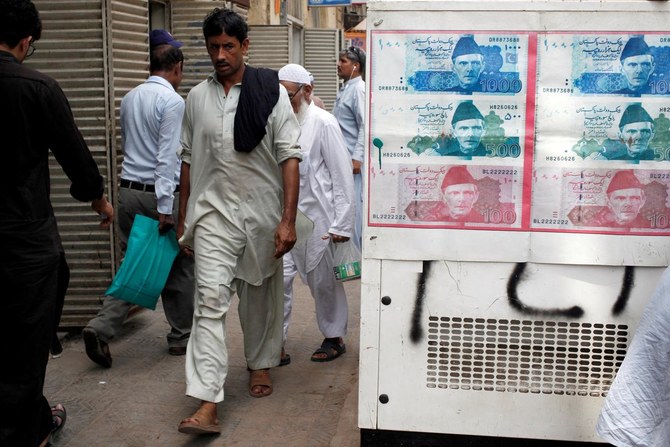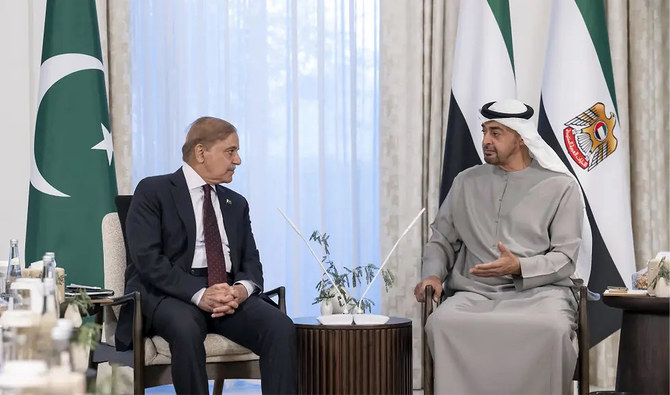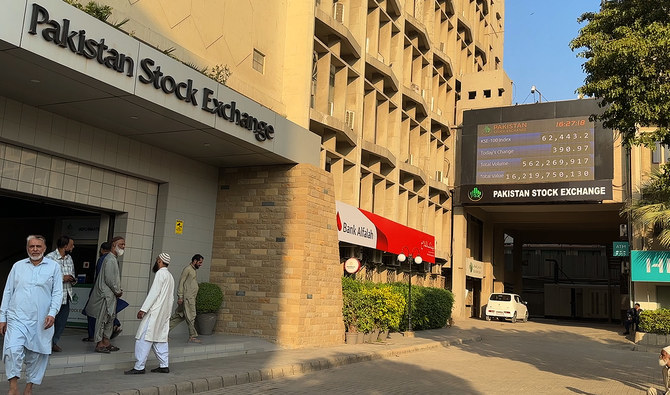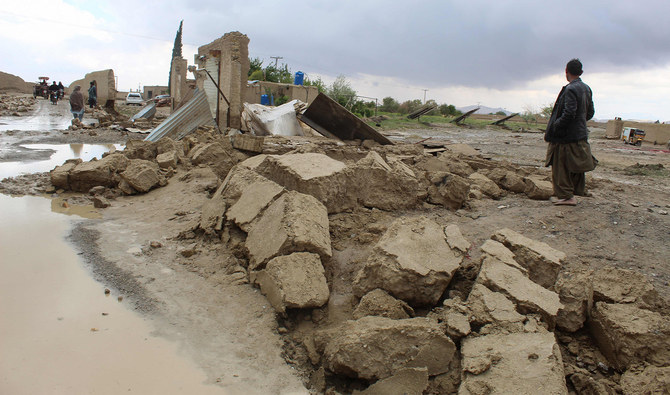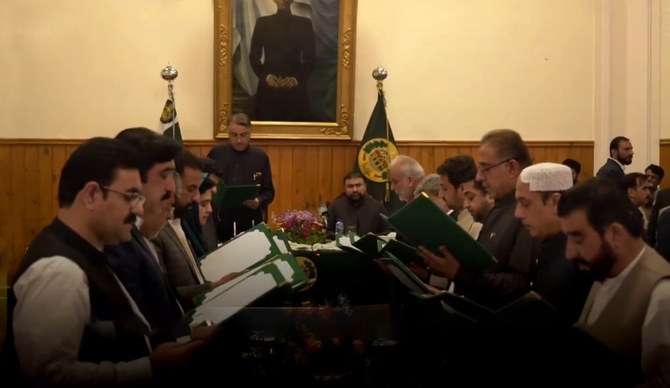ISLAMABAD: Less than 10 months after coming to power in Pakistan with visions of creating a welfare system to lift millions out of poverty, economic crisis has forced Prime Minister Imran Khan into the hard realities of an IMF bail-out.
In the days since last week’s agreement in principle with the International Monetary Fund for a $6 billion loan, the rupee currency dropped 5 percent against the dollar, and it has now lost a third of its value in the past year. Financial crises have shaken the world’s sixth-largest nation repeatedly over the years, threatening the stability of a nuclear-armed state plagued by Islamist militancy, and while the IMF program may help stabilize the economy, it will bring more hardship.
“It is coming with a lot of pain,” Ashfaque Hasan Khan, an academic and a member of Khan’s economic advisory council, commented on the likely impact.
Under the IMF’s terms, the government is expected to let the rupee fall to help correct an unsustainable current account deficit and cut its debt while trying to expand the tax base in a country where only 1% of people file returns.
Just how committed the government is to making changes could become clearer on Saturday, when newly appointed Finance Minister Abdul Hafeez Shaikh is due to unveil his plan for the economy.
Shaikh has to present a 2019/20 budget next month, having been told by the IMF that the primary budget deficit — excluding interest payments — should be cut to 0.6 percent of GDP, implying a $5 billion reduction from the current projection for a deficit of 2.2 percent.
The crisis has taken a toll on policymakers. Khan has also replaced the central bank governor, and this week the finance secretary and the head of Board of Investment left their posts.
Foreign currency reserves stand at around $8 billion, not enough to cover three months of imports, making Pakistan desperate for the IMF board to give its blessing for the release of the first tranche of the loan.
Warning of growing inflationary pressures that are already squeezing household budgets hard, the central bank has hiked its key interest rate by 150 basis points to 12.25 percent even though the economy is slowing and millions of people are struggling to find work.
Khan’s government had tried to avoid going to the IMF. Instead it sought billions of dollars in loans from countries including Saudi Arabia, the United Arab Emirates and Pakistan’s “all weather friend” China.
But that money has not been enough, and analysts say the government will suffer for not reaching agreement with the IMF more quickly.
“The cost of going into this program is far higher than if we had done it much earlier,” said Mohammed Sohail, head of Topline Securities in Karachi. “It shattered confidence.”
Foreign direct investment halved during the first 10 months of a fiscal year that began in July. The $60 billion China Pakistan Economic Corridor, launched in 2015, had promised a new beginning, with infrastructure projects that could become a new foundation for growth, but it also required heavy imports of capital equipment, widening the trade deficit.
FRAGILE DEMOCRACY
Once the IMF loan is finalized it should open the way for other funding agreements with other lenders. While that will bring some relief, Yousuf Nazar, former head of emerging market equity investments at Citigroup and author of a book on Pakistan’s economy, saw dangers ahead.
“The fallout could be a widespread social and political backlash that could cut short Imran Khan’s tenure in the office,” he said. Opposition parties have threatened protests once the Muslim holy month of Ramadan ends in early June. At least, unlike some other civilian leaders in Pakistan’s fragile democracy, Khan appears to have good relations with the country’s powerful generals.
But he’s working with a budget where more than half of spending currently goes on the military and debt servicing costs.
Problems are deep-rooted. The tax system is weak, carried by customs and sales tax and a tiny minority of salaried employees and companies. In a population of 208 million, only 1.8 million file income tax returns.
Key industries with powerful lobbies including agriculture as well as an informal sector, estimated at anywhere between a third and 90% of the overall economy, are untouched and tax evasion is rampant. Having widened to its highest in 11 years, the fiscal deficit is forecast by the IMF at more than 7% of GDP, and while data released this week showed the current account narrowing, the IMF has forecast it at 5.2% of GDP.
“The imbalances are out of hand and to fix those you have to take difficult actions,” said former finance secretary Waqar Khan, who helped negotiate Pakistan’s last IMF bailout in 2013-16.



